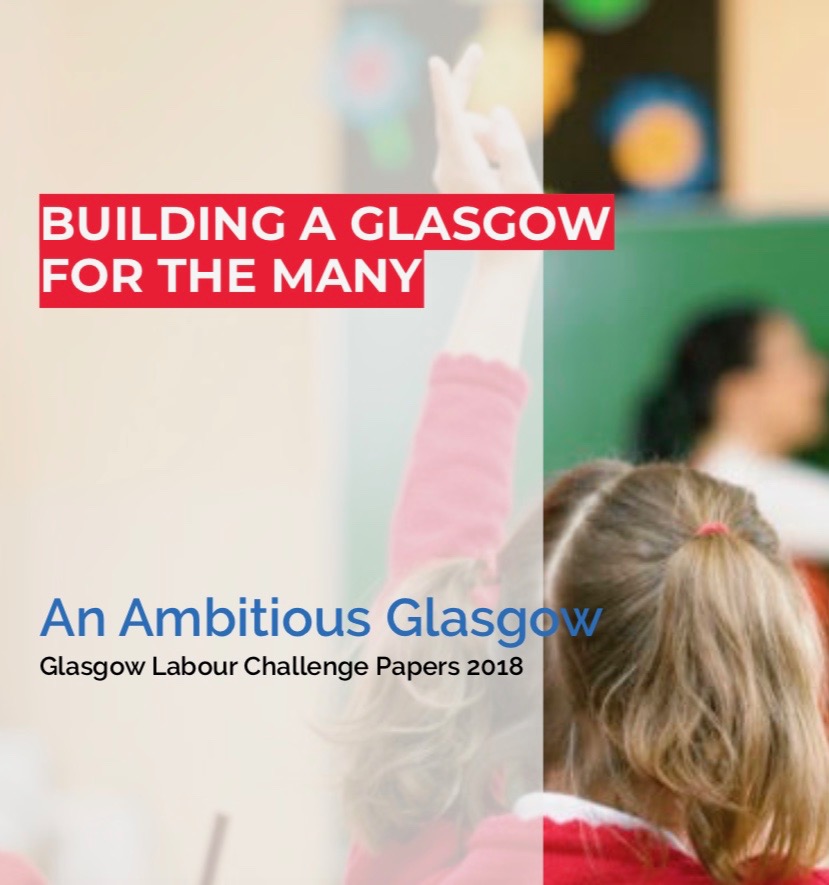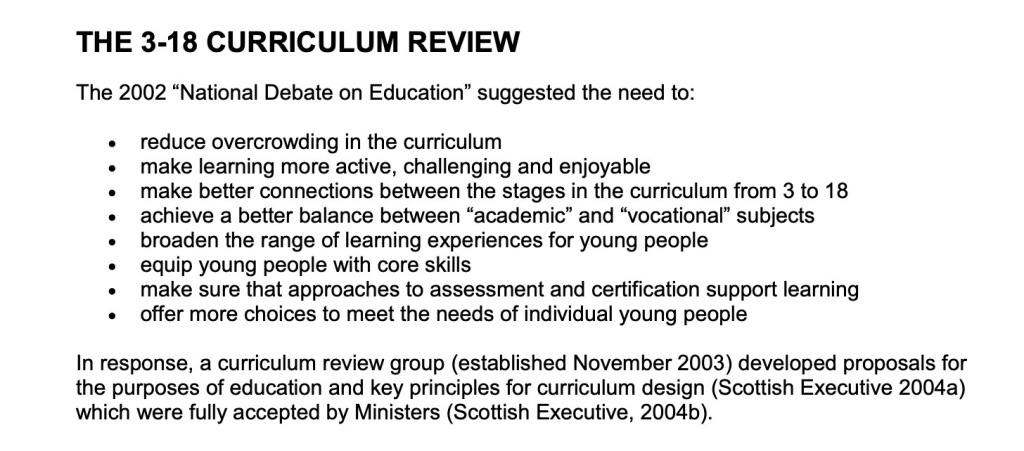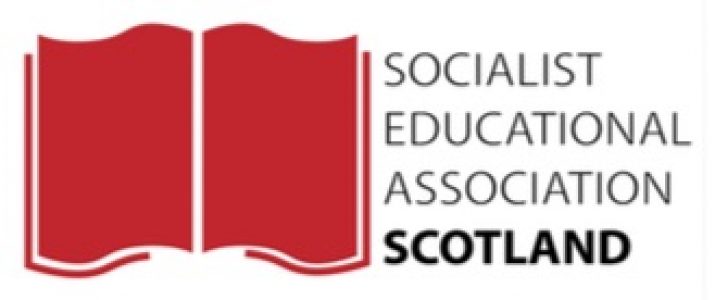 SEAS responds to “An Ambitious Glasgow ” a Glasgow Labour Party Challenge paper on education. We think Glasgow can celebrate some of its great achievements over the past decade and flourish in the future with a social justice agenda.
SEAS responds to “An Ambitious Glasgow ” a Glasgow Labour Party Challenge paper on education. We think Glasgow can celebrate some of its great achievements over the past decade and flourish in the future with a social justice agenda.
In Scottish terms, Glasgow has the unique education system. It’s the largest local authority. It has the greatest numbers of children and young people, schools and centres, teachers and staff. Never mind that it also faces unique challenges too.
SEAS notes the progress Glasgow’s students have made in their attainment in the last decade. In terms of attainment the recent Education Scotland (2019)[1]report focused on attainment. It noted that over the past 4 years “Glasgow performs consistently better than its virtual comparator but remains below the national figures. It can also be seen that Glasgow is closing the gap with the national figures.” Glasgow’s own report to councillors noted the major increase since 2007.
The SEAS recognises that under Labour Glasgow’s achievements in the city’s education system in the 21st century have been far wider that attainment progress. By the way, the progress in Glasgow’s education system predated any claims of success from the SNP.
Wider achievements
Since 2000, Glasgow and its education system have responded positively to making provision to refugees and asylum seekers. Glasgow has become a city with more languages spoken than ever among its citizens. Our comprehensive schools have ensured significant progress being made in an inclusive city. Glasgow’s inclusive and welcoming approach to ethnic minorities has led to this diversity being a real strength.
Now, in Glasgow, the highest attaining groups in the city are girls from ethnic minority backgrounds. The in-school provision of bilingual support in local schools has benefitted all Glasgow’s children and young people. In particular the SEAS admires the quality of provision within Glasgow’s primary schools, many of which work together with all the families and their diverse communities so very successfully. The SEAS would wish such inclusive approaches were extended even further to those with additional support needs and disabilities.
Glasgow as well as being inclusive of its diverse school population has also worked very well to promote equality education through tackling sectarianism in projects such as “Sense Over Sectarianism”. This project which Glasgow initiated is a model of effective practice for promoting and embedding equality education in Scottish education.
The paper should also note the significant decline in children and young people from Glasgow referred for offending behaviour to the Children’s Hearing System. In 2006, 2842 children from the Glasgow area were referred and by 2017 this had declined to 441 children[2]. Glasgow’s education services have played their part in such reductions as during the period there has been a significant decline in exclusions from school. There is evidence from the Centre for Youth and Criminal Justice[3]that exclusion from school education is one of key factors predicting offending behaviour.
Scottish government under SNP would do well to ensure closer attention to these education successes in Scotland’s largest city.
Glasgow Labour Party’s challenge paper on education Ambitious Glasgow highlights areas where further progress can be made.
Early years
Glasgow’s Labour Party makes early years the key priority for tackling educational disadvantage.
UNICEF’s paper “Early Moments Matter for every child” (2017)[4]placed its number one priority as being
‘Invest urgently in services that give young children, especially the most deprived, the best start life in life.”
The SEAS sees the need to consider greater flexibility in starting ages beyond 5 and greater flexibility in the curriculum to ensure more play and experiential learning across 0-7 years. Many children will benefit from a flexible school start. It would be better than too-early and too-formal approaches of schooling such children seated in rows, rigid groupings based on some notion of “ability” and overly-strict timetabling of the school day. The SEAS proposes greater flexibility in starting ages.
The OECD recent report, “Starting Strong” (2017)[5]supports the idea of more flexible support proposing better quality in early years. It emphasises the benefit of educational interventions at early childhood for those disadvantaged children compared to well-off children.
We need to make our schools more ready for all our children, not get children ready for schooling. SEAS supports continued improvement in early child development service to offer high quality learning and care with staffing weighted towards areas facing disadvantage. We note the challenges faced by the underfunding of early years by Scottish Government as highlighted by Audit Scotland report “Early Learning and child care” (2018)[6], referenced in the SEAS motion passed by Scottish Conference in March 2018[7].
The SEAS is aware that council provision is generally of the highest quality in Scotland. We recognise the vital role of third sector and other partners at this stage and encourage the Labour Party when in power to work in partnership with other partners to improve the quality of provision in private and voluntary provision. As a priority, the SEAS supports investment in quality early learning with access to staff trained in integrated approaches, improving access to teaching. We should ensure more challenging and enjoyable experiential learning through play within early level of Curriculum for Excellence.
Schools and attainment
SEAS would encourage Glasgow Labour Party to consider a social justice agenda for our schools raising achievement and not solely focused on attainment. While Glasgow over the past ten years has improved attainment outcomes as measured by exam performance, the gap between advantaged and disadvantaged remains. Inclusive education with a focus on social justice would do more to narrow such gaps and raise achievement outcomes for those in our most disadvantaged areas. The SEAS would welcome moves to ensure teaching of the highest quality taking place in the areas of disadvantage.
Glasgow as the largest local authority can do more to “grow our own educators”, encouraging child development learning, supporting peer educators and establishing Aspiring Educators Groups in every secondary school to mentor young people towards working in learning and education.
We want Scotland to aspire to global best practice by being a world leader in achieving Sustainable Development Goal 4[8]and its targets and realising children’s rights to inclusive education.
Schools should embed equality education to challenge stereotyping and reduce bullying against those different, including class, gender, disability, race, sexual orientation religion of belief with greater attention to sustainability, global citizenship and equality education.
We should invest in and foster real inclusion for those with additional support needs and plan for progressive inclusion with a new role for special schools and specialist services to reduce segregated education and support inclusive schools.
Positive destinations, skills and lifelong learning
At the Senior Phase collaboration among schools, education authorities, communities, unions and businesses is needed to give greater value to skills for life, learning and work including digital skills, particularly for working class young people. We can do better in offering personalised pathways to prepare young people for future careers in technical and vocational learning. Municipal socialism within education at the Senior Phase must involve a collective and collaborative effort across the city to improve outcomes for all our young people.
We call on Glasgow to eliminate any public support or subsidy to private fee-charging schools in Glasgow and seek to phase out private fee-paying schools. Glasgow schools and young people will benefit from educating all our young citizens in local inclusive comprehensive schools.
The SEAS is concerned at reports of children failing within Gaelic Medium Education in Glasgow and calls for language support particularly at the early years for children aiming to be bilingual in English and Gaelic. The good practice within Glasgow for English as a Second Language support can be successfully extended to support for Gaelic as a Second language. Children make better progress in two languages when their “mother “ tongue is supported too.
SEAS is not aware of evidence to support continued use of rigid inflexible grouping and setting in schools. Too many schools utilise this approach particularly in the Broad General Education and recent evidence casts doubt on its effectiveness especially for children facing disadvantage (Education Endowment Foundation[9]). In the Executive Summary p9 the OECD in Equity and Quality in Education (2012)[10]proposes that reducing rigid grouping, stratification and early setting leads to better overall outcomes for schools particularly in disadvantaged areas.
The role of Glasgow City Council in monitoring “Ambitious Glasgow”
Finally, we see these approaches taking place with greater autonomy and flexibility at community level. Schools are to be encouraged to work towards better collaboration within and between schools in their communities and beyond. Professor Mel Ainscow has set out an agenda for a more equitable education system. [11]In this approach, given greater professional autonomy, the role of the local authority is key in monitoring, supporting and challenging schools. In our view the local authority ensures schools work towards a more equitable system on a social justice strategy set nationally and secure inclusive education for all our children.
References
[1]Education Scotland Report on Glasgow City Council 2019
[2] Online statistical Dashboard, Scottish Children’s reporter
[3] Making school a positive experience Centre for Youth and Criminal Justice
[4] Early Moments matter for every child UNICEF 2017
[5] Starting Strong OECD 2017
[6] Early Learning and care report Audit Scotland 2017
[7] SEAS motionto Scottish Labour Party Conference 2018
[8] Sustainable Development Goal 4 and its targets, UNESCO
[9] Education Endowment Foundation
[10]Equity and Quality in Education OECD (2012)
[11]“Towards a more equitable system” Fabians Education (2019)



 SEAS responds to “An Ambitious Glasgow ” a Glasgow Labour Party Challenge paper on education. We think Glasgow can celebrate some of its great achievements over the past decade and flourish in the future with a social justice agenda.
SEAS responds to “An Ambitious Glasgow ” a Glasgow Labour Party Challenge paper on education. We think Glasgow can celebrate some of its great achievements over the past decade and flourish in the future with a social justice agenda.

